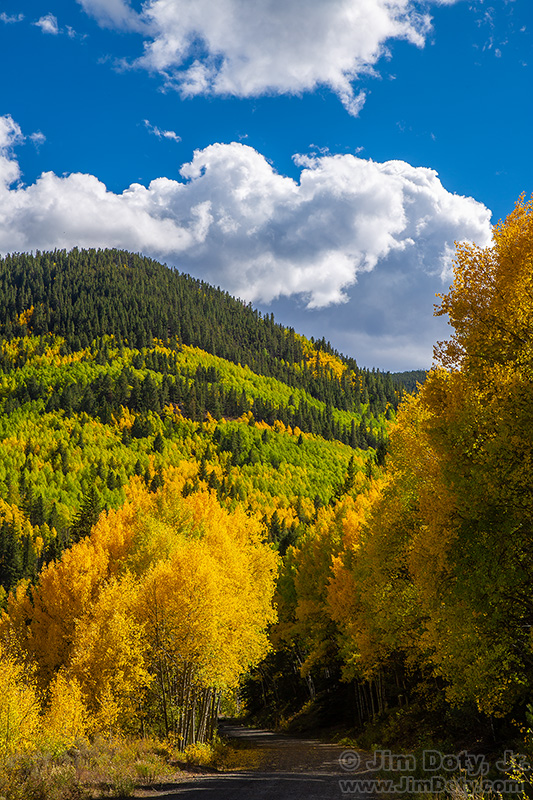
Marshall Pass is a beautiful fall color drive in southern Colorado, and still pretty much a secret. It does not turn up on most lists of the most beautiful fall color drives in Colorado. It is a beautiful drive with a lot of fall color photo opportunities.
Originally posted November 7, 2019. Updated and re-posted August 9, 2024.
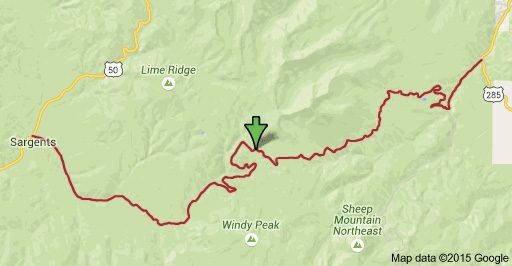
Marshall Pass is an alternate route to taking U.S. 50 over Monarch Pass. At Poncha Springs Colorado go south on US 285 until you get to the signs for Marshall Pass and O’Haver Lake. Turn right (west) and follow the signs. The road will take you around O’Haver Lake, up over the pass on the south flank of Mt. Ouray and down to Sargents Colorado at US 50. I definitely recommend driving this road from east to west and starting out in the morning. Allow anywhere from 2 to 4 hours if you intend to do some serious picture taking.
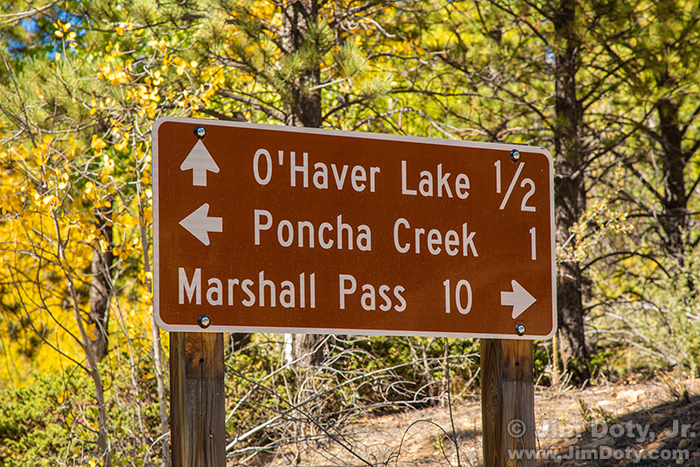
When you get to the O’Haver Lake/Poncha Creek/Marshall Pass intersection go straight the short half mile drive to O’Haver Lake. You will come back to this intersection later to drive the 10 miles to the top of Marshall Pass. But before you drive up to O’Haver Lake, stop at this intersection and take some pictures.
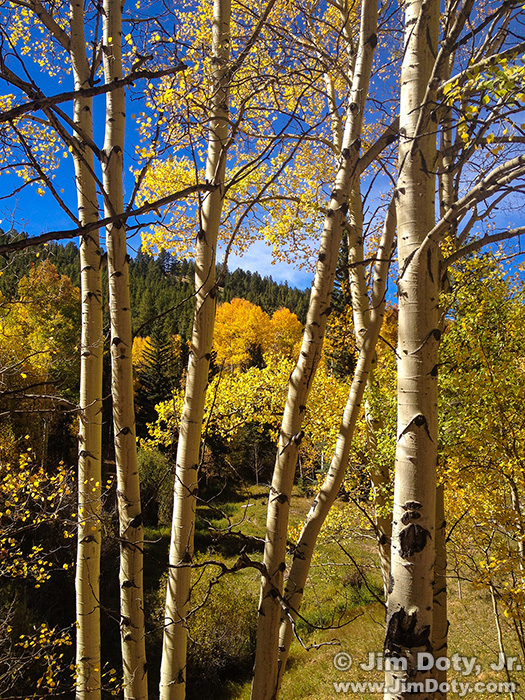
If you walk south from the sign about 100 feet toward Poncha Creek there is a very nice stand of aspen to your right that you can frame with foreground aspen boles. There are other places at this intersection to take nice photos of backlit aspen on a sunny day.
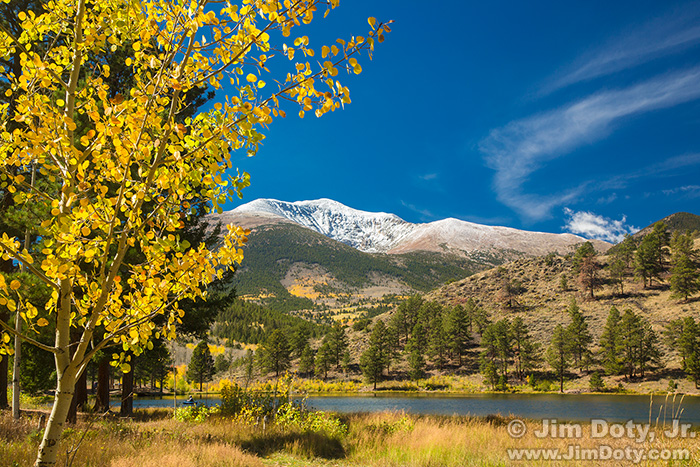
O’Haver Lake is one of my favorite places going back to my childhood when our family would camp here. It is a great place to camp if you are looking for a forest service campground. If you are looking for a motel there are places not far away in Poncha Springs and Salida.
Morning gives you the best light on Mt. Ouray which is named for an important Native American chief who met and negotiated with three U.S. Presidents over the course of his lifetime. The large bowl in the mountain is called The Devil’s Armchair. Mt. Ouray is a high thirteener and it is usually climbed from the south flank beginning at or near the top of Marshall Pass.
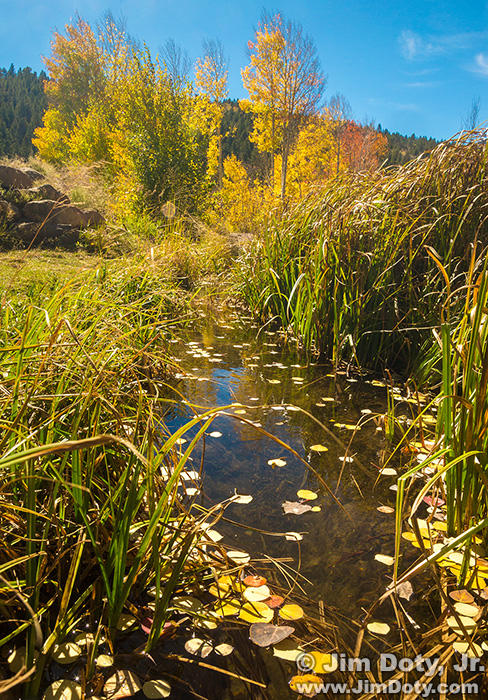
There is a small stream that feeds O’Haver Lake that provides some intimate landscape possibilities.
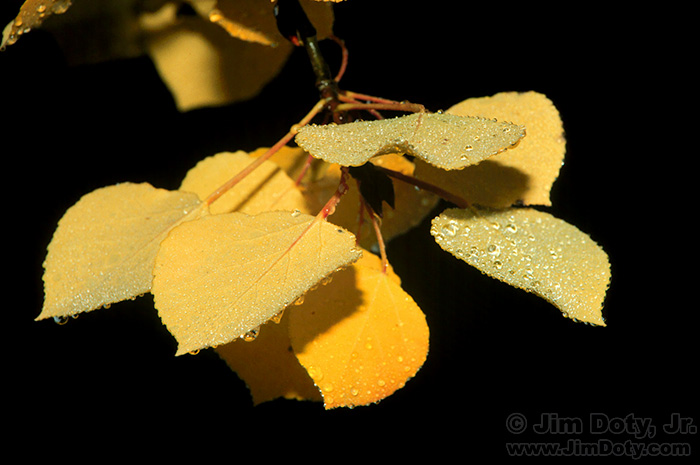
Don’t pass up an opportunity to create some aspen leaf closeups. I was drawn to the dew on these leaves. The leaves were in sunlight, so I picked an angle that gave me a background in the shade to make the leaves really pop.
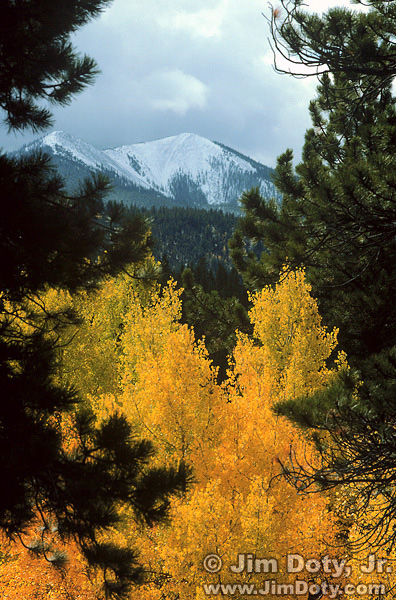
If you walk part way up the ridge just east of the lake and past the campground, you will have a nice view of Porphyry Peak. This image was one of my first magazine covers.
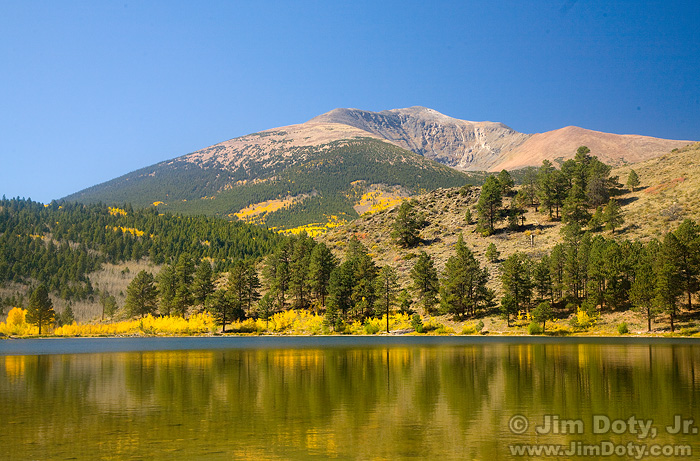
After taking pictures at O’Haver Lake, drive back to the intersection to go to Marshall Pass.
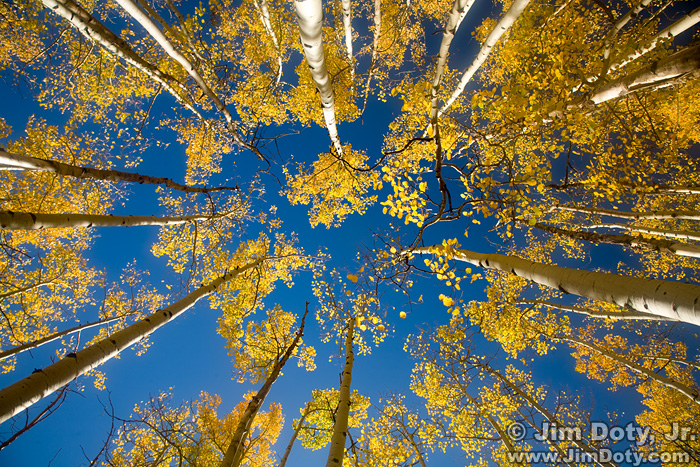
There are several beautiful aspen groves along the road as you climb to the summit of the pass. Get out in the middle of an aspen grove and do something creative.
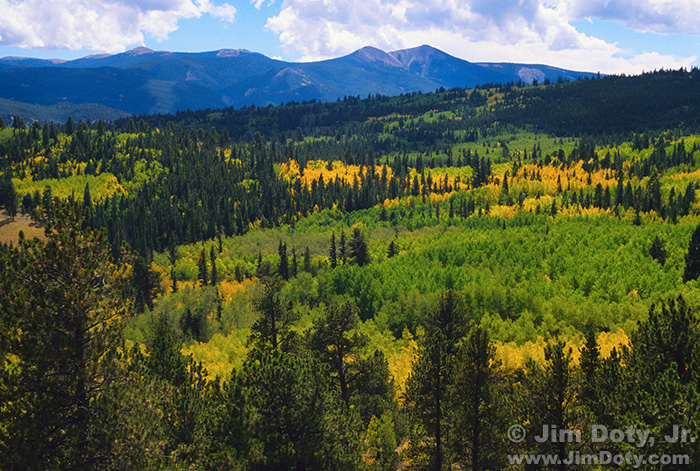
As you drive up the east side of Marshall Pass there is a nice viewpoint looking to the south at Porphyry Peak with aspen in the foreground.
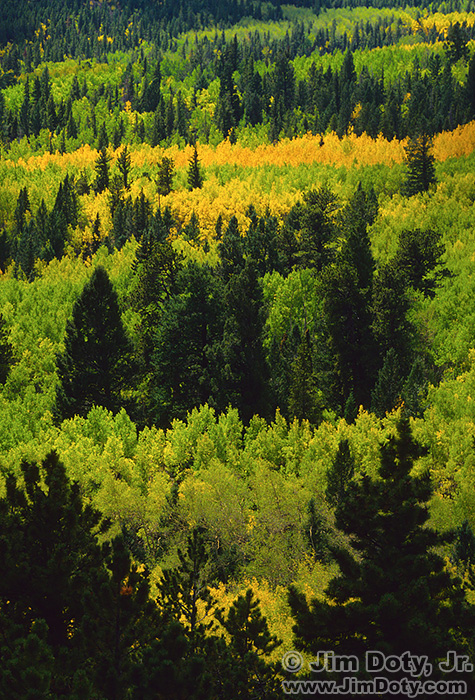
From the same Porphyry Peak photo location you can use a telephoto lens and pick out select groups of trees to photograph. George Lepp (columnist for Outdoor Photographer magazine) calls this telephoto technique “optical extraction”. After you take a photo with a wide angle lens, look for telephoto images you can extract out of the larger scene. This scene was extracted from the right edge of the Porphyry Peak photo above.
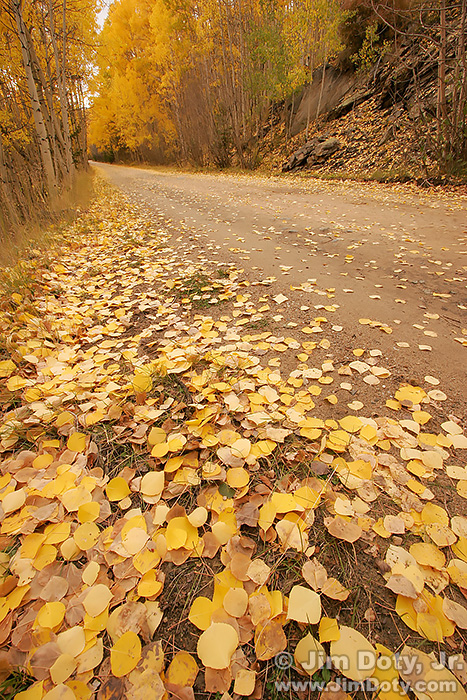
Don’t pass up the opportunity to do some nice curving road images.
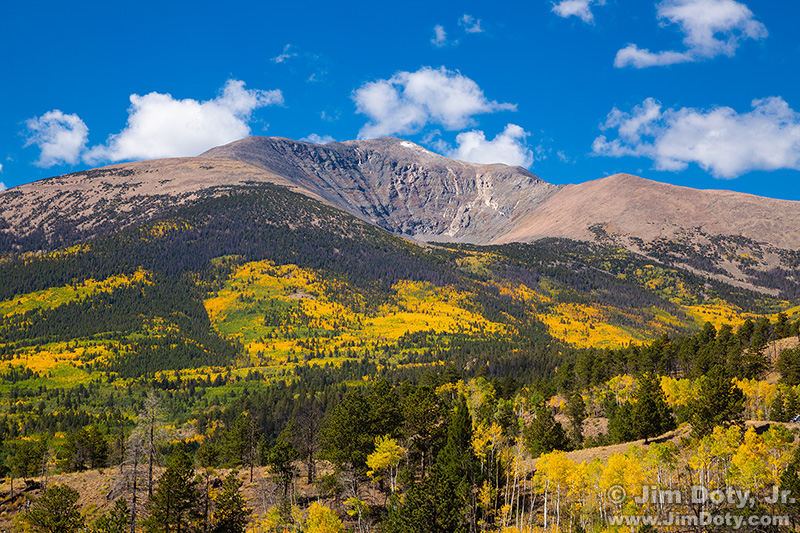
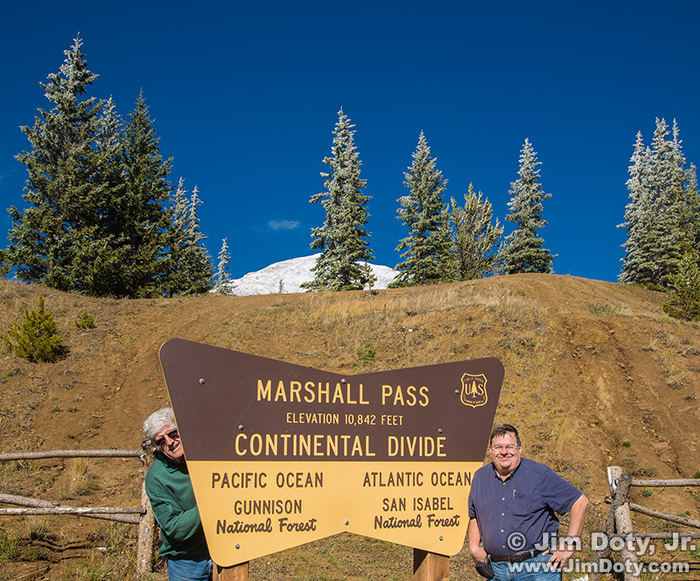
There is a sign at the top of the pass. The top of Mt. Ouray is in the background.
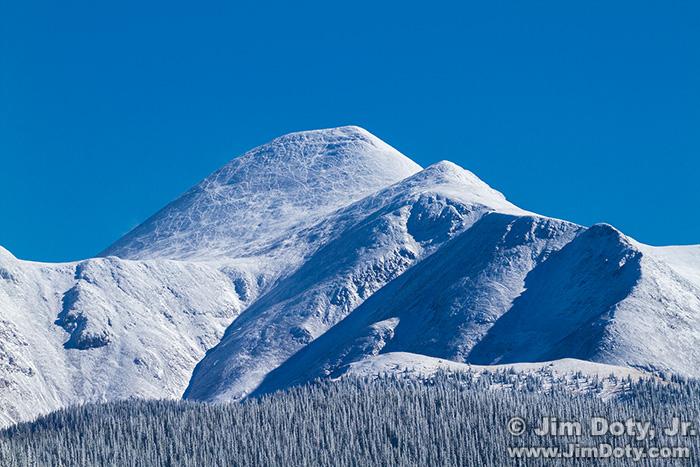
At the top of the pass there are some nice views to the south of Antora Peak. One year we lucked out and the peak was snow covered and all the trees were covered with frost. To get this viewpoint, see the comments below the next photo.
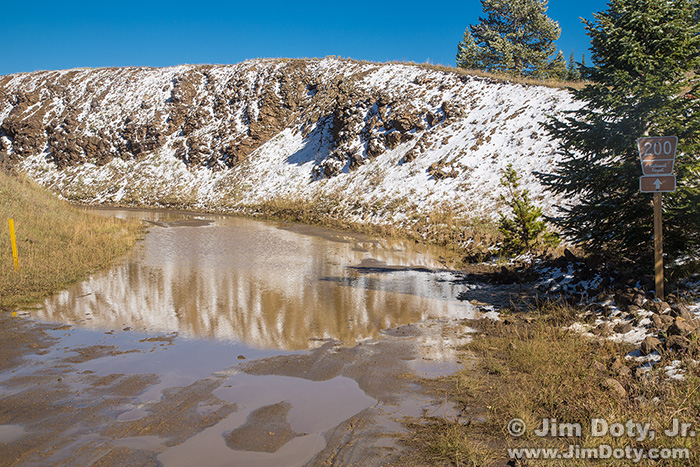
Thanks to a recent snow, the road was pretty sloppy at the top. The rise you see just above the road is where you walk to photograph Antora Peak. This is looking east.
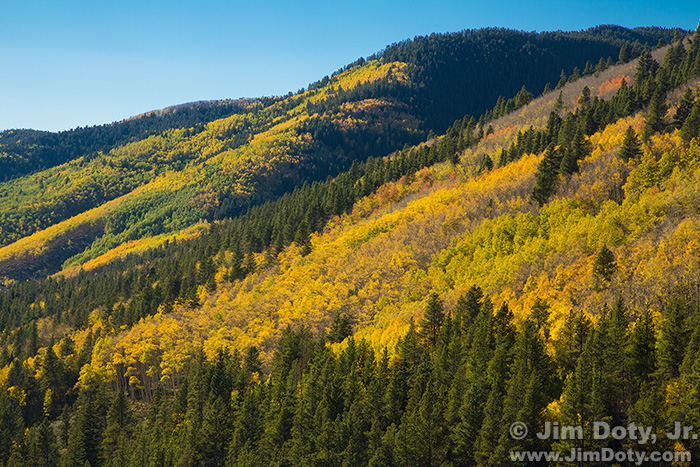
As you drive down the west side of the pass, there are overlooks to the west where you see several aspen covered ridges, side-by-side.
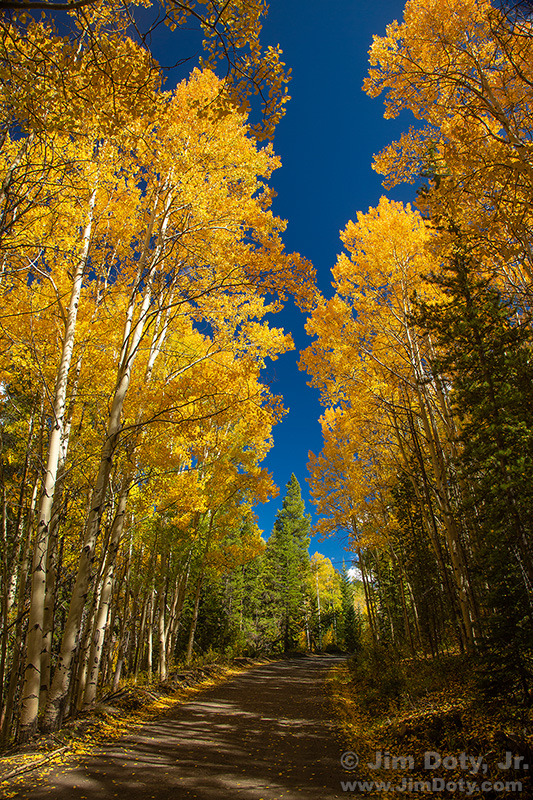
On the trip down the west side of Marshall Pass you will find one beautiful aspen grove after another.
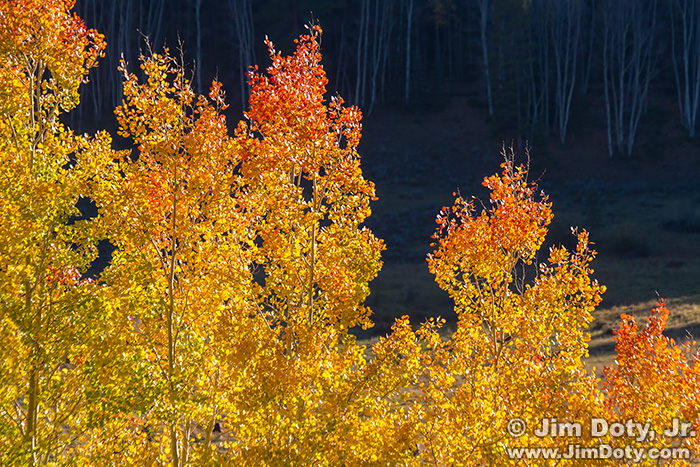
Depending on the year and the time you make the drive, you should find some red or orange tipped aspen.
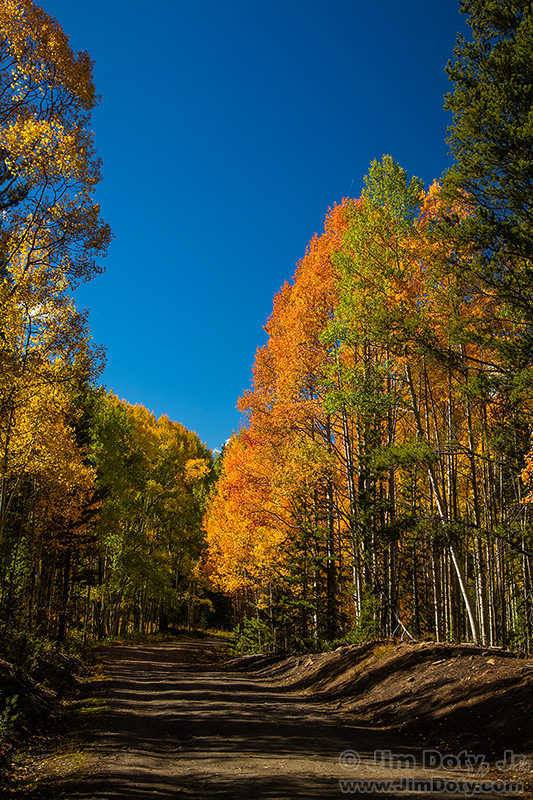
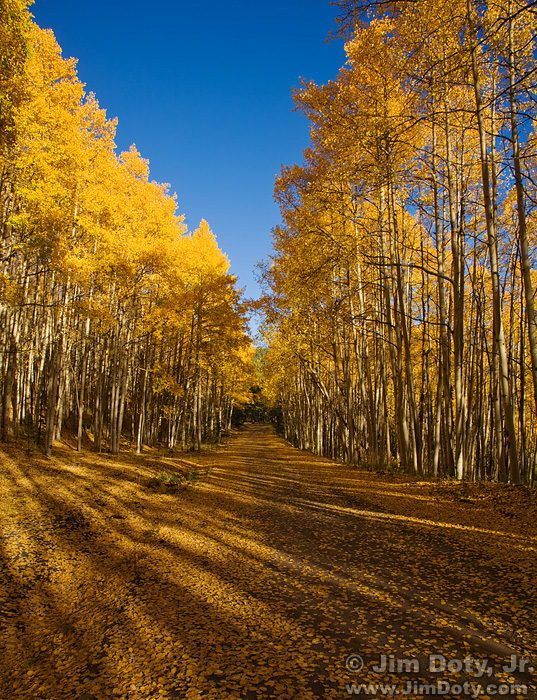
If you happen to be on the west side of Marshall Pass later in the afternoon, you can get some dramatic shadows falling across the road.
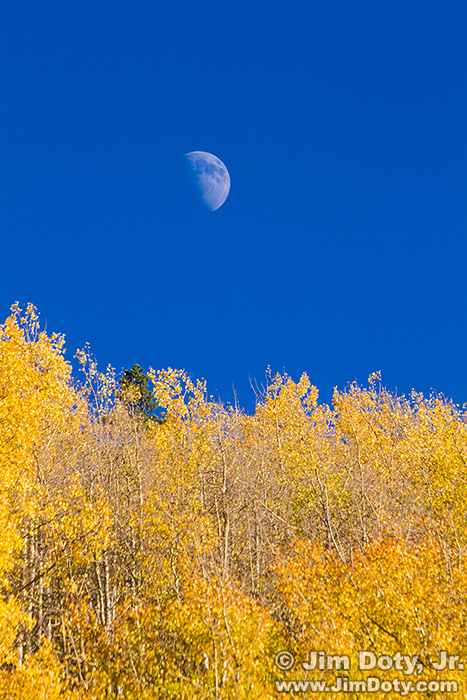
Keep your eyes peeled. I spotted the moon over some aspen. A long lens (210 mm) gave me a nice sized moon.
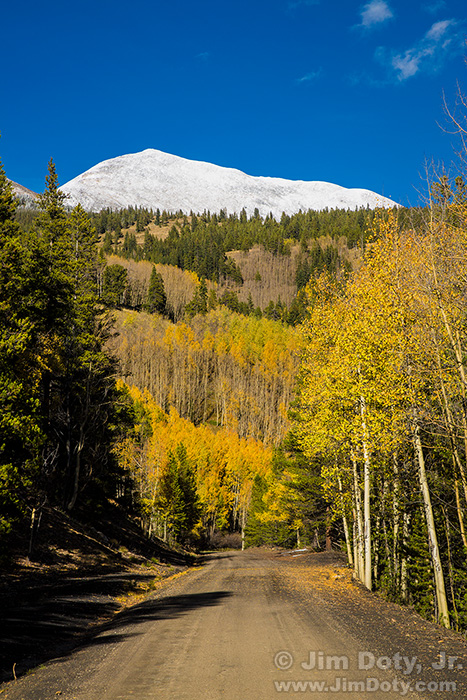
There are places going down the west side of the pass that you can see Mt. Ouray.
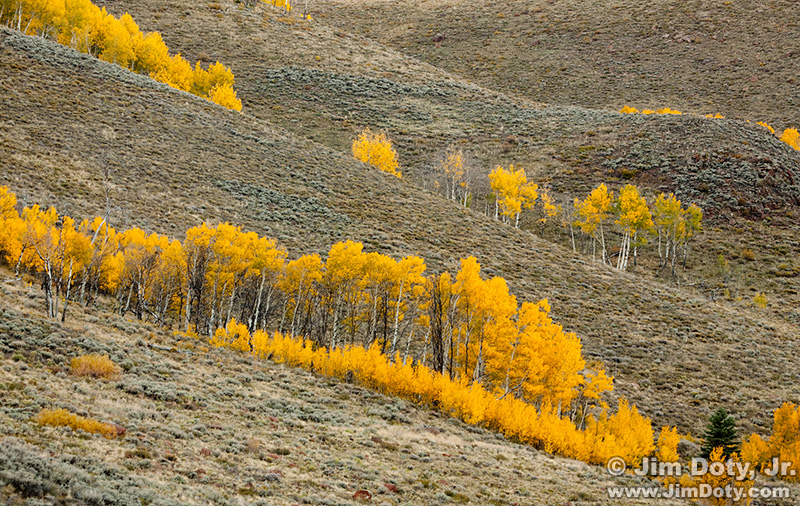
The first few miles coming down the west side of Marshall Pass are the best. As you drop quickly in elevation you get into the foothills, the evergreens go away and there are only a few spots where you see small aspen groves, although they have a beauty all their own. The rest of the drive toward Sargents is mostly grasslands and hills.
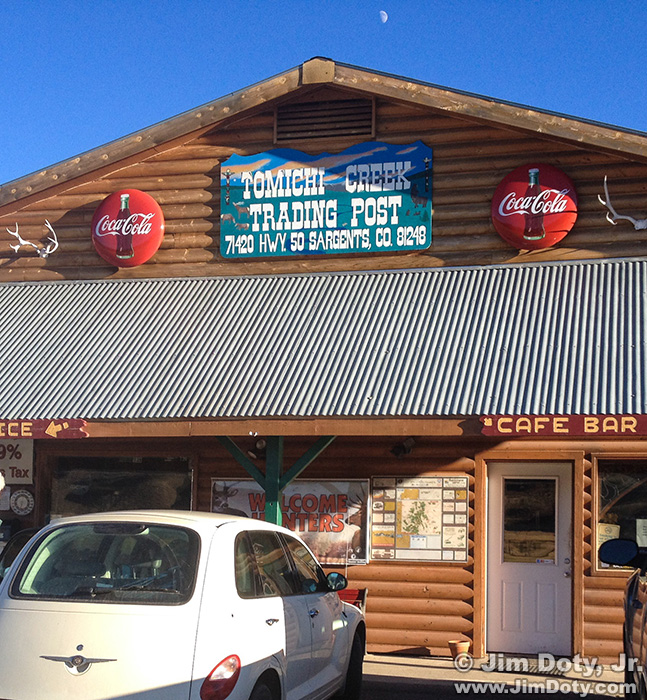
When you get to Sargents I highly recommend you stop and eat at the Tomichi Creek Trading Post. The food is excellent.
When is the Best Time to Go?
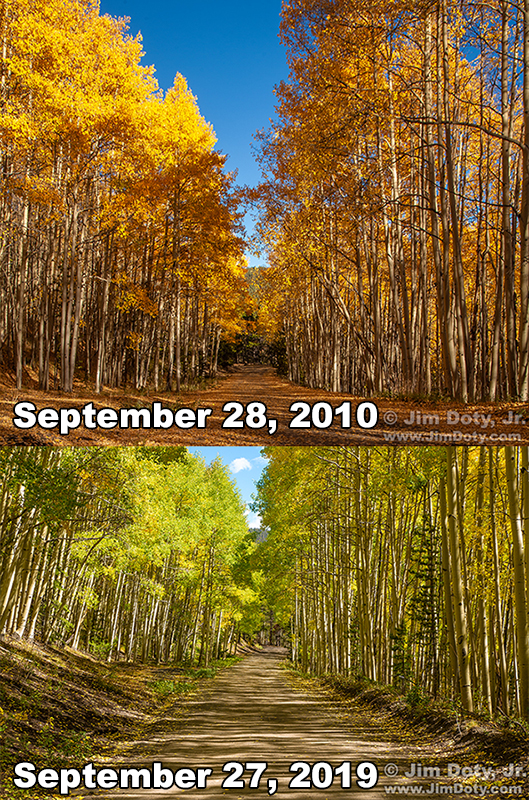
First, the time the aspen turn can vary, and in some unusual years by quite a bit. 2019 was a very unusual year with warm weather delaying the change by as much as a week. These two photos were taken nine years apart on the same stretch of road. The places I was standing for these two photos were about 100 feet apart from each other. In 2010 the aspen have fully turned. In 2019 they are just starting to turn. The 2010 photo is most typical of this stretch of road for most years. In 2019 the colors were late.
All of the photos in this article are dated to give you an idea what goes on in different years. Based on my experience, Marshall Pass is at its best at the very end of September and very early October. I led a four day photo safari in 2019 and picked the last weekend in September as the best bet. We ended up with great color here and there along the road. Because everything was late it is my guess is there would have been good colors somewhere for the next week. The good news is there are so many good stands of aspen on Marshall Pass, some of them are going to look good, even if you miss the peak by several days. Some years a freak storm can strip the leaves bare and leave you with nothing. With Mother Nature there are no guarantees. Pick a date very late in September or very early in October and go.
Links
Colorado Fall Color Travel and Photography Guide
Finding the Peak Fall Colors at the Best Locations
The Best National Parks for Fall Photography
Two Photographers and Eleven Outdoor/Travel Writers Pick the Best National Parks for Fall
